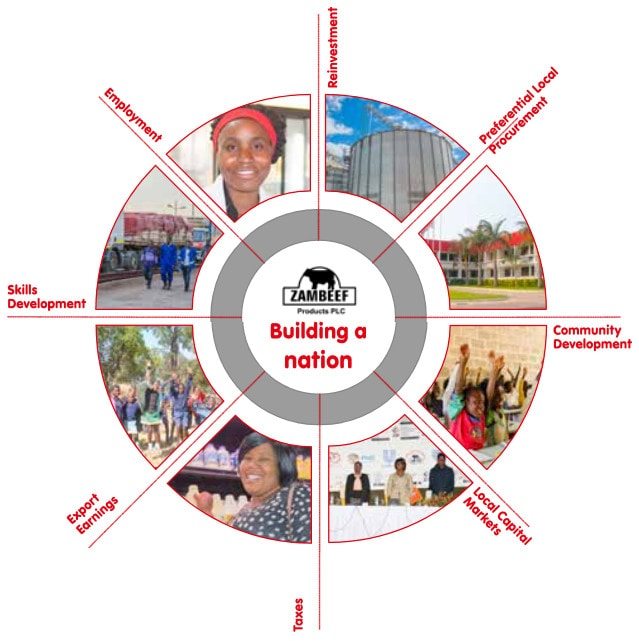Our Impact

Employment
Zambeef continues to be one of the largest employers in the country, with over 7,000 staff. Over 99% of employees are Zambian.
The Group’s Cropping division provides significant employment to rural communities, where poverty levels are higher than in urban areas.
Reinvestments
Zambeef has a strong development record, being one of the largest investors in the agricultural sector in Zambia over the last seven years, amounting to over USD 150 million.
Taxes
The Group is a significant contributor to government revenues.
Local capital markets
A significant percentage of the Group’s shareholding is owned by local institutional investors and pension funds including the National Pension Scheme Authority (NAPSA), which means every working Zambian has a stake in the Company.
Preferential local procurement
Zambeef is one of the largest business partners and employers in many rural areas. Zambeef actively promotes the procurement of locally produced raw materials, resulting in poverty alleviation and sustainable development of these rural economies.
We support a number of small and medium scale outgrowers; a large percentage of our cattle, pigs, chickens and milk are sourced in rural areas or through outgrower schemes.
The economic multiplier effect of the Group’s policy of sourcing from local small-scale suppliers is significant.
Export earnings
The Group is a member of the Zambia Development Agency’s Million Dollar Club of leading exporters.
For the FYE 30 September 2017, the Group recorded foreign exchange export income of over USD 2.6 million, while total Group USD-denominated revenues were USD 55 million.
Skills development
Zambeef is fully committed to developing and training its employees at all levels. The Group’s continual reinvestment in human resources has resulted in many senior positions being held by Zambians.
Food security
Zambeef plays a pivotal role in the food security of Zambia, ensuring the country has sufficient capacity to feed its growing population as well as a surplus for export to help feed neighbouring countries.
